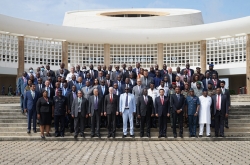SINGAPORE – Strengthening border controls, including port security in strategic locations, was the overall aim of Operation Anchor, led by INTERPOL.
This practical exercise was the culmination of a series of training courses for first responders and investigators responsible for preventing and combating various forms of maritime crime.
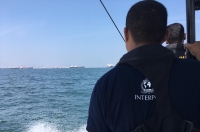
Law enforcement agencies in Indonesia, Malaysia, the Philippines and Vietnam worked together to locate and intercept individuals and groups responsible for cross-border crimes including people smuggling, human trafficking, robbery at sea, hijacking and kidnap for ransom, firearms trafficking and the smuggling of illicit goods.
Collaboration leads to seizures, arrests and rescues
Southeast Asia is a major hub for seaborne trade, with a large number of shipping companies vulnerable to maritime crimes in the region. Against this backdrop, Operation Anchor carried out sea patrols, inspected vessels, goods and crews, and screened passengers and their passports.
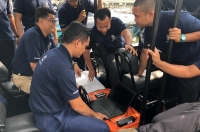
Strong collaboration between the police, navy, coast guard, immigration, customs and other maritime units in all four participating countries resulted in a number of arrests and seizures:
- 3 tons of listed marine species seized
- 14 vessels engaged in illegal fishing seized
- suspects in 3 drug trafficking attempts arrested
- 2 cases of smuggling contraband discovered
- 18 suspects arrested for various transnational cases.
The operation also paved the way for the rescue of five victims of human trafficking onboard a vessel in Taganak Island, Philippines."op anchor"
.jpg)
Matches against INTERPOL databases
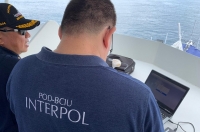
The exercise generated more than 6.5 million searches against INTERPOL databases, with 10 confirmed hits on Red Notices (international alerts for wanted persons), stolen and lost travel documents, and diffusions. Most of the subjects were either prevented from boarding their flights or were sent to alternative airports for follow up action.
Eight border management kits were deployed including a forensic tool, called Seek Avenger, which was sent out in the Philippines to assist maritime units in conducting random checks of individuals at sea.
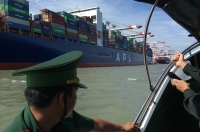
The importance of training for sustainable impact
The Operation (carried out over three weeks in July to August) was preceded by training as part of Project MAST, funded by the Government of Canada.
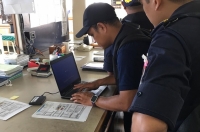
A total of 222 frontline officers, including 54 female officers, were trained on the use of INTERPOL’s databases, forensic and border management tools as well as maritime crime scene investigation, criminal intelligence analysis and investigative interviewing techniques.
A major goal of Operation Anchor is to put the participants’ newfound knowledge into practice, thereby consolidating their skills and strengthening institutional capacity in the four beneficiary countries.
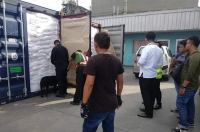
Recommendations for the future
During a debriefing meeting in October, participants confirmed the value of the training and operational exercises, and expressed their commitment to reinforce law enforcement activities in the maritime domain.
Recommendations included extending access to INTERPOL’s secure global police communications system to additional maritime agencies and seaports; sharing more information on criminal activities in the region; and involving prosecution services for legal advice.
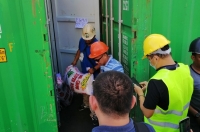
Jorge Fainstein Day Gastrell, INTERPOL Acting Director for Capacity Building and Training Directorate said: “with its global policing capabilities, INTERPOL can contribute substantially to supporting transnational prosecutions. Through this exchange platform, we can bring law enforcement officers together to fight crime more effectively.”
Wan Azri Bin Wan Ishak, Deputy Director of INTERPOL’s National Central Bureau in Kuala Lumpur, underlined the ability of Operation Anchor to provide the best platform to foster international and regional cooperation. He said, “I welcome this timely initiative from INTERPOL to plan and conduct a targeted interagency operation and I hope that, between us, there will be a constant effort to safeguard our nations against any crossborder crime.”
Countries involved
Related news
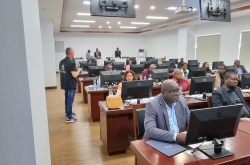
Border security threats focus of STOP operations in Africa
8 December 2023
First INTERPOL-AFRIPOL counter terrorism operation
6 October 2022





